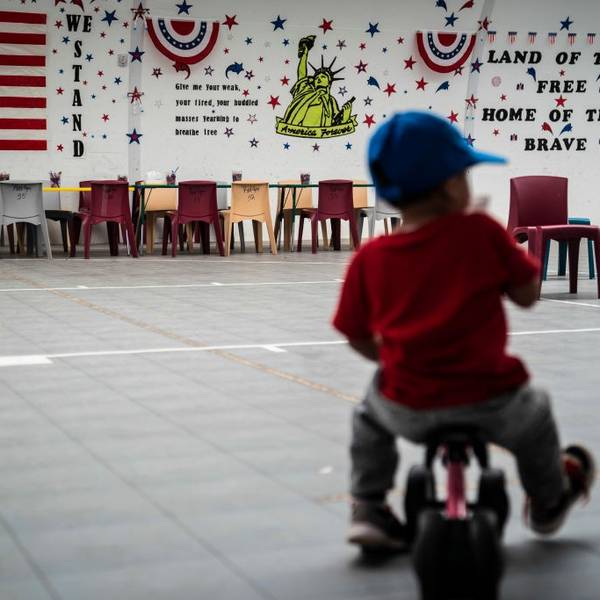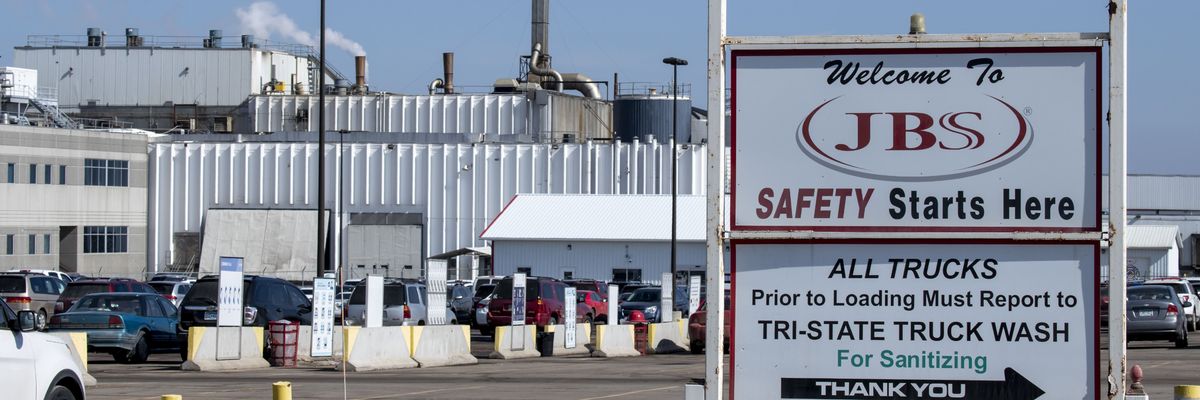Federal investigators revealed Friday that one of the nation's largest food sanitation companies illegally employed at least 102 children in dangerous jobs at 13 meatpacking facilities across eight states, leading to $1.5 million in fines.
The U.S. Department of Labor (DOL) said its Wage and Hour Division "found that children were working with hazardous chemicals and cleaning meat processing equipment including back saws, brisket saws, and head splitters."
The probe determined that children ages 13 to 17 unlawfully worked for Kieler, Wisconsin-based Packers Sanitation Services Inc. at plants in Arkansas, Colorado, Indiana, Kansas, Minnesota, Nebraska, Tennessee, and Texas.
Jessica Looman, principal deputy administrator of the DOL's Wage and Hour Division, said the child labor violations "were systemic" and "clearly indicate a corporate-wide failure by Packers Sanitation Services at all levels."
"These children should never have been employed in meatpacking plants and this can only happen when employers do not take responsibility to prevent child labor violations from occurring in the first place," Looman charged.
Michael Lazzeri, the division's regional administrator in Chicago, said that "our investigation found Packers Sanitation Services' systems flagged some young workers as minors, but the company ignored the flags."
"When the Wage and Hour Division arrived with warrants, the adults—who had recruited, hired, and supervised these children—tried to derail our efforts to investigate their employment practices," Lazzeri noted.
The DOL—which found at least three cases where illegally employed children were injured on the job—fined the company $15,138 for each child who was not legally employed, the highest possible penalty under federal law.
As The New York Times reported:
Some researchers have criticized the civil monetary penalties, which are set by Congress, as "woefully insufficient" to protect workers and to deter employers from violating labor laws.
"It's really shameful that the level of fine is so low," said Celine McNicholas, director of policy at the Economic Policy Institute, a research group that seeks to improve conditions for workers. "It's not sufficiently toothy enough to prevent the use of child labor in the meatpacking industry."
Despite such criticism, Solicitor of Labor Seema Nanda framed the case as an example of accountability, delcaring Friday, "The Department of Labor has made it absolutely clear that violations of child labor laws will not be tolerated."
"No child should ever be subject to the conditions found in this investigation," Nanda said. "The courts have upheld the department's rightful authority to execute federal court-approved search warrants and compelled this employer to change their hiring practices to ensure compliance with the law. Let this case be a powerful reminder that all workers in the United States are entitled to the protections of the Fair Labor Standards Act and that an employer who violates wage laws will be held accountable."
In a lengthy statement Friday, Packers Sanitation Services said that it was "pleased to have finalized this settlement figure."
"We have been crystal clear from the start: Our company has a zero-tolerance policy against employing anyone under the age of 18 and fully shares the DOL's objective of ensuring full compliance at all locations," the statement continued, noting internal audits and the hiring of "a third-party law firm to review and help further strengthen our policies."
The statement highlighted that none of the illegally employed children still work for Packers Sanitation Services, and "the DOL has also not identified any managers aware of improper conduct that are currently employed" by the company.
The revelations come amid a renewed national debate about child labor laws sparked by Republican legislators in Iowa pushing rollbacks to allow children as young as 14 to work in jobs including animal slaughtering, logging, and mining.
The proposal in Iowa is part of a trend of GOP state lawmakers across the country advocating relaxed child labor laws in recent years.




